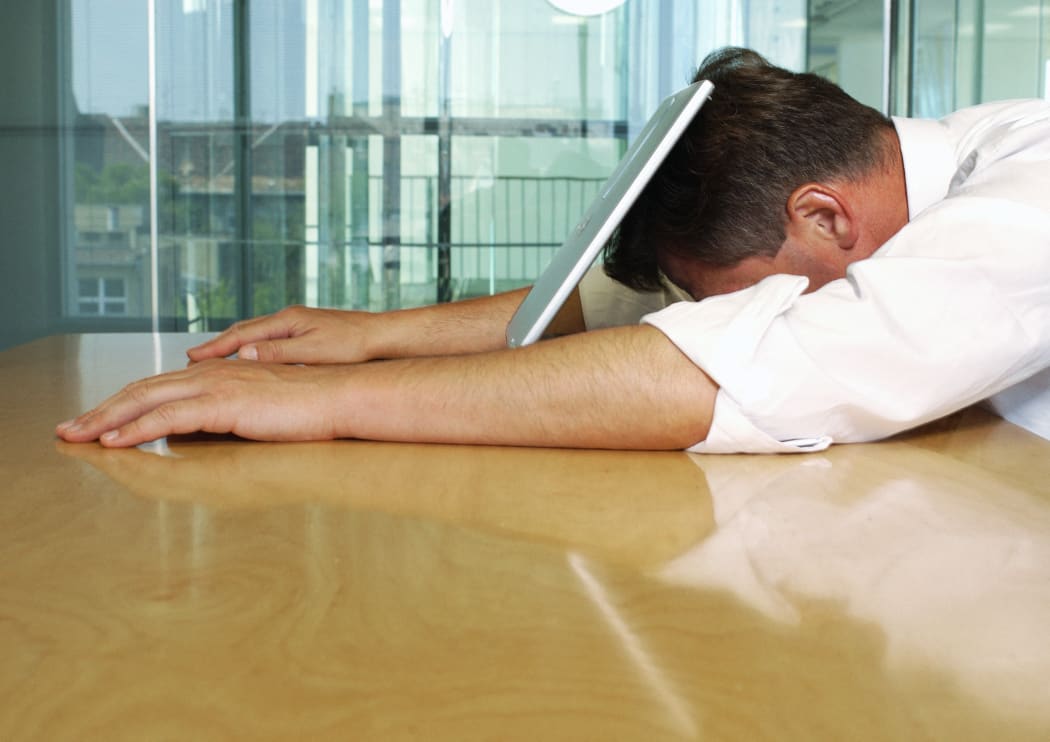
Photo: TEO LANNIE
Most of us who took some time off over the holidays will be getting back into the swing of things by now. But why are we feeling so tired?
Professor Ian Hickie, co-director of health and policy at The University of Sydney’s Brain and Mind Centre, has been looking into it and his conclusions are not as intuitive as we would think.
After a recent trip to the US, Europe and the UK over the Christmas break, he encountered similar reports of fatigue.
Some of the possible explanations according to Hickie were that more people were reporting feeling tired coupled with a change in work practise and expectations.
“We've been through some pretty tough periods in recent years, changes in workforces, the Covid lockdowns, recovery and a return to work.
"I think people are stopping and taking stock of their lives and rather than just doing more and more responding more and more to new technologies, new challenges, people are going hang on a second. am I okay? Are we okay or am I a bit exhausted?"
Hickie believed that it was not just the changes in technology, but the expectations that workers have. He believed peopled needed to think about how they led their lives.
“People expect to lead a better life. They expect to lead a wealthier life."
Hickie’s point was that workers may not be asking themselves the right questions about their life. It was not just the quantity but also the quality.
“I think one of the factors that is going on is the way in which our societies have changed, and people feel more disconnected, more alone, and feel they're having to cope on their own with financial challenges, health challenges, quality of life challenges.
“Interestingly, tiredness also runs with powerlessness."
Hickie said we were at an important moment of social change and much of society post-Covid was trying to work out what the structural benefits of work were.
“No-one really expected it. The Covid stuff didn't just affect our physical healthcare, it's changed our social environment as has technology.
“So, we are in a period of considerable social disruption."
But what was the answer to reducing fatigue?
While things like meditation or mindfulness apps seemed popular, they may not be helping to solve the underlying issues.
People were focused on health and wealth, and everyone wanted more, Hickie said. He pointed out that a problem of living in wealth-driven societies where we compare ourselves with others was, that this has paradoxically made us more mental-health poor.
He said humans were social animals so connecting with others and being part of a community work better in relieving stress. Taking an interest in family connections and volunteering could help with social cohesion and mental health.
“When you put a bigger emphasis on collective wealth, individual’s mental health and well-being goes up. The more you put the emphasis on individual wealth, the more individual mental health and wellbeing goes down”.
A more immediate way of relieving tiredness was to get active. While this seemed counter-intuitive, Hickie believed there were real benefits.
“It sounds quite perverse. I mean, imagine seeing a doctor like me that says, 'look, you're really tired, now what I want you to do is be active'. We're involved in a lot of systematic research around tiredness and despite what you might think, the counter-intuitive nature of it, getting up and doing something and participating and being active, reduces the tiredness."

